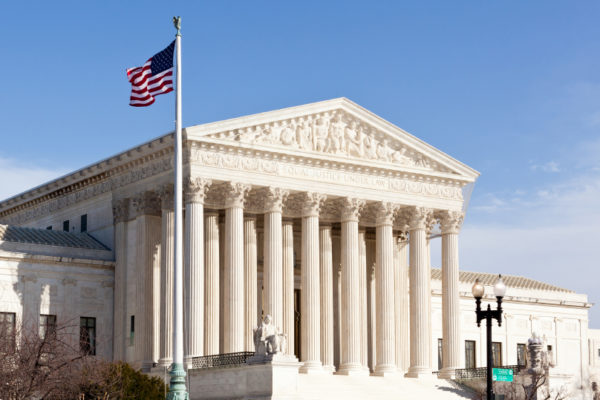The Supreme Court’s longstanding position has been that colleges and universities have a compelling interest in diversity and may consider race among many factors when assessing qualified students for admission. But if Brett Kavanaugh is appointed, that position could change and would probably signal a return to pre-Civil Rights era race-neutral admissions policies.
This is not what America needs. Race-conscious admissions policies remain vital for ensuring diverse student bodies that reflect our ever-changing society. If Kavanaugh can’t support this longstanding positon, he should not be confirmed.
Although Kavanaugh has not written any opinions on affirmative action while on the D.C. Circuit Court of Appeals, his likely aversion to such policies is revealed through his attitude toward unenumerated rights — as Kavanaugh describes them, any rights not expressly listed in the Bill of Rights.
Last year, while honoring the late Chief Justice William Rehnquist, Kavanaugh lauded Rehnquist’s antipathy toward “free-wheeling judicial creation of unenumerated rights that were not rooted in the nation’s history and tradition.” Chief among the judicially created rights of which Rehnquist was most critical were reproductive rights. While Kavanaugh has recently been credited for acknowledging that Roe and its progeny are “well-settled” law, his praise of Rehnquist in those cases rests on Rehnquist’s dissent and his rejection of implied rights.
Similarly, Kavanaugh has praised the late, anti-affirmative-action jurist Antonin Scalia. In a speech paying tribute to Scalia, he linked Fourteenth Amendment reproductive rights cases with affirmative action cases, collectively describing them as “some of the most disputed and controversial areas in law” that lack “objective guideposts that can give us neutral ways to decide these cases.”
Kavanaugh states that affirmative action policies depart from the fundamental protections of the Fourteenth Amendment. For him, these policies create an exception to “a basic equal protection right not to be treated differently by the government on account of your race.” Given his position on the constitutional validity of reproductive rights, it is doubtful that Kavanaugh will support race-conscious admissions policies.
Conservative economist Peter Morici predicts Kavanaugh would help a new conservative majority dramatically limit affirmative action. He argues that race-conscious admissions policies have led university campuses to “systematically vilif[y] the contributions of European heritage to American civilization” and “discriminat[e] against white males.” For Morici, affirmative action policies represent the institutionalization of “racial, political and gender prejudices.” Accordingly, opponents of affirmative action in higher education are counting on Kavanaugh to disrupt the 40 years of precedent set by Bakke and re-examined in Fisher.
Currently, the race conscious admissions policies of Harvard University and the University of North Carolina are under siege. Students for Fair Admissions (SFFA), the same conservative group that funded Abigail Fisher’s case against The University of Texas at Austin, finds itself at the center of both cases.
While the nonprofit’s primary objective remains the same — to end the consideration of race in college admissions — in the case of Harvard, the group alleges the university intentionally discriminates against Asian applicants in favor of white applicants with lower test scores. SFFA’s proposed solution is to force colleges to focus primarily on SAT scores, a move that it acknowledges would greatly diminish racial diversity at Harvard and other “competitive” universities. Consequently, these cases represent the perfect moment for opponents of affirmative action.
The Trump administration also seems to support SFFA’s mission. The Department of Education recently rescinded Obama-era guidelines supporting race-conscious admissions policies. Although the administration’s position does not alter the legal status of affirmative action, it bolsters the position of its opponents who claim such policies are unconstitutional.
Race-conscious admissions ultimately benefit all students. Unfortunately, if Brett Kavanaugh is confirmed, those who have waged a relentless, decades-long battle against considering race for college admission may finally be rewarded.
Shavonne Henderson is a lecturer of law and assistant director of policy research in the Institute for Urban Policy Research and Analysis at The University of Texas at Austin.
Martin Kamp is a juris doctorate postgraduate fellow at The University of Texas at Austin.
A version of this op-ed appeared in the San Antonio Express News, Austin American Statesman, and the Corpus Christi Caller Times.
To view more op-eds from Texas Perspectives, click here.
Like us on Facebook.




